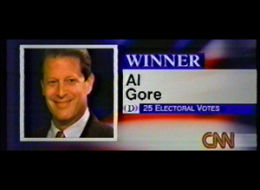Note: please don't turn this into a flamefest. Probably a futile request, but I still have to ask.
Which is more "accurate" to describe the happenings of a population? I lean towards pop culture.
Example 1:
Civil War got rid of slavery, Rosa Parks, and desegregation in schools. However, the movie "The Toy" (starring Richard Pryor, released in 1982) shows a rich white kid buying a black janitor for the boy's own amusement; basically a "slave" of sorts.
Example 2:
The age-old keeping up with the Jones'. We've gone into debt, but life was good. I don't know of any country that doesn't owe something to someone. However, while history books will portray doom and gloom, 10% or so (given unemployment stats and such) were affected. High? Yes. Depression Era times? Not in my book.
Text and factual accounts tell the surface, whereas pop culture really tells the true history of a people, IMO. Thoughts?
Which is more "accurate" to describe the happenings of a population? I lean towards pop culture.
Example 1:
Civil War got rid of slavery, Rosa Parks, and desegregation in schools. However, the movie "The Toy" (starring Richard Pryor, released in 1982) shows a rich white kid buying a black janitor for the boy's own amusement; basically a "slave" of sorts.
Example 2:
The age-old keeping up with the Jones'. We've gone into debt, but life was good. I don't know of any country that doesn't owe something to someone. However, while history books will portray doom and gloom, 10% or so (given unemployment stats and such) were affected. High? Yes. Depression Era times? Not in my book.
Text and factual accounts tell the surface, whereas pop culture really tells the true history of a people, IMO. Thoughts?


